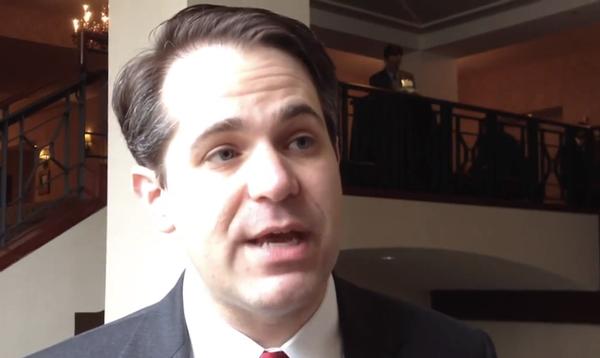
Photo by: NYC comptroller
Deputy Comptroller Ari Hoffnung ran against Councilman Oliver Koppell in 2005 and lost, considered a run in 2009 but declined when term limits were extended and toyed with a 2013 race before dropping out and endorsing Andrew Cohen, now the Democratic nominee.
This is the second election cycle in a row that City Council candidate Ari Hoffnung has dropped out unexpectedly, with around $72,000 sitting in his campaign chest.
It seemed that Hoffnung had every reason to run in this election cycle. The New York State Conflicts of Interest Board gave Hoffnung the green light to run for City Council, while keeping his job as deputy city comptroller. He also already had a fundraising head-start on the other candidates.
But in early June, Hoffnung suddenly announced that he was dropping out of the race for district 11, which includes Riverdale, Kinsgbridge, Woodlawn, Van Cortlandt Village, Norwood and Bedford Park, and throwing his support behind attorney and political newcomer Andrew Cohen, citing family obligations. Cohen had the backing of the local political establishment.
“While I chose not to run for family reasons, I plan on actively campaigning for Andrew, and have already begun reaching out to my supporters urging them to unite around his candidacy,” Hoffnung said in a June 14 press release.
Hoffnung lost his first City Council campaign to incumbent Oliver Koppell in 2005 by a three-to-one margin. He planned to run again in the 2009 race, but after term limits were extended in late 2008, Hoffnung dropped out.
“Something peculiar to New York City happened in 2009 – the extension of term limits. When this happened, several people, including Ari Hoffnung, wished to drop out because that wasn’t what they had bargained for,” says Jonathan Reznick, campaign finance expert and Founder of Competitive Advantage Research, LLC.
When Hoffnung announced that he might run for Council this May he already had around $80,000 in campaign funds, all raised for the 2009 race between April and October in 2008. But for $7,000 in expenditures, that money is still sitting in his campaign chest, and so far he has no plans for what he will do with the funds.
“Right now I’m not touching that money,” Hoffnung says. “I’m very passionate about public service, but I have three very young kids, so I’m focusing on my family right now.”
New York City’s campaign finance system imposes spending caps on candidates who receive public matching funds. Candidates who already have cash frozen from previous campaigns are seen to have an advantage because the money they spent raising those funds—staff time, mailing expenses, event costs and so on—does not count toward the campaign’s spending cap.
To lessen this advantage, candidates have to pay something called a fundraising allocation—a sum of money meant to push the spending tally closer to the cap, $5,019.82 in Hoffnung’s case.
“Fundraising allocation was the trade-off for suspending your campaign, and getting to hold on to the money for the next cycle,” Reznick says.
The Campaign Finance Board said that the spending limit adjustment was a one-time charge, but Hoffnung can keep his campaign funds for a future race. Hoffnung could wait until January, and then transfer the funds to a new account for the 2017 election cycle, according to the board.
Hoffnung might be out of a job come January, when his boss, Comptroller John Liu, will leave office, but Hoffnung says he does not know what the future holds for him in terms of running for public office.
“Maybe when my kids get older I’ll revisit campaigning, but I have no immediate plans for that right now,” he says.
According to Hoffnung’s campaign finance filings with the New York State Board of Elections, his only campaign expenditure besides the fundraising allocation between 2008 and 2013 was a $2,000 donation to State Senator Adriano Espaillat’s campaign.
While $72,000 isn’t an enormous sum for a Council race, the money Hoffnung has in his war-chest is more than was raised by many candidates around the city who prevailed in the September primary.
Hoffnung is not the only former Bronx candidate with an unexpended balance of campaign funds. Joel Rivera, the councilman for district 15, is term-limited and can not run in this election, he still has an estimated balance of almost $184,000 in funds.
This practice extends beyond the Bronx. In Brooklyn, Councilman Domenic Recchia, who is term-limited and seeking a seat in Congress, still has over $245,000 in campaign funds, according to New York City Campaign Finance Board records.
Now endorsed by Hoffnung, Cohen—who handily won the September primary and is expected to prevail easily in next week’s general election—says he has no idea what Hoffnung’s future campaign plans are.








